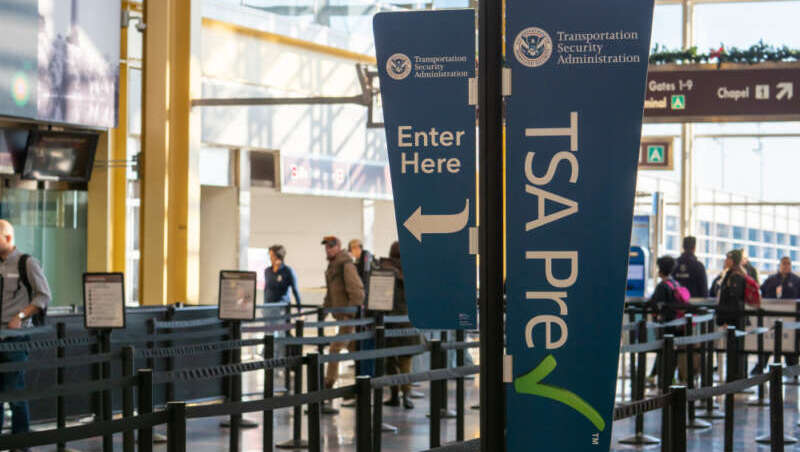
The Transportation Security Administration (TSA) issued a final rule on Friday that will allow passengers to continue to use mobile driver’s licenses (mDLs) to verify their identity at airport security checkpoints after higher REAL ID security standards go into effect next year.
The rule – which goes into effect Nov. 25 – temporarily waives the requirement that mDLs must be compliant with REAL ID requirements as enforcement begins on May 7, 2025.
“The need for this rulemaking arises from TSA’s desire to accommodate and foster the rapid pace of mDL innovation, while ensuring the intent of the REAL ID Act and regulations are met,” reads the Oct. 25 rule. “Secure driver’s licenses and identification cards are a vital component of our national security framework.”
The TSA said it will eventually replace the temporary rule to set more comprehensive requirements for mDLs after emerging industry standards and Federal guidelines are finalized.
The rule states that establishing Federal guidance is important as “several States are investing significant resources to develop mDLs based on varying and often proprietary standards, many of which may lack security and privacy safeguards commensurate with REAL ID requirements and the privacy needs of users.”
According to the final rule, states must apply to TSA for a temporary waiver of certain REAL ID requirements and demonstrate that they fulfill Federal and industry standards for cybersecurity, encryption, and privacy. Once approved, those state mDLs will continue to be accepted at TSA airport security checkpoints. TSA said it will publish a list of states where mDLs are approved for Federal acceptance.
Currently, TSA accepts mDLs issued by 11 states and at 27 participating airports with a goal of “accepting mDLs in all airports, by expanding the technology nationwide.” States issuing mDLs include Arizona, California, Colorado, Georgia, Hawaii, Iowa, Louisiana, Maryland, New York, Ohio, and Utah.
Accessible through a mobile application, mDLs are typically stored in a digital wallet and can be scanned or tapped against a mDL reader to verify a traveler’s identity – similar to how many users currently store their physical credit cards on their smartphones.
After delays in making the full REAL ID Act effective, starting in May all U.S. citizens and territory residents will be required to present a REAL ID-complaint license or other form of identification to access Federal facilities and successfully pass airport security.
